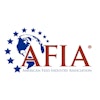
The National Grain and Feed Association's arbitration system has quietly resolved industry disputes for more than 120 years, offering a specialized alternative to traditional courtroom litigation that has seen record demand amid recent market volatility.
Founded in 1901, the program stands as the nation's oldest private commercial arbitration system, according to Charlie Delacruz, NGFA's senior vice president, general counsel and secretary, who oversees the process.
A system born from industry need
The roots of NGFA's arbitration program trace back to the organization's founding in November 1896, when 38 grain dealers gathered in Chicago to form what was then called the Grain Dealers National Association.
"High on their goals was establishing a procedure for the settling of trade disputes," Delacruz explained. The system became official in October 1901 with the formal adoption of arbitration rules, establishing what is believed to be the oldest continuously operating commercial arbitration system in the United States.
The program was designed to address the specific needs of the grain and feed industry, where disputes often involve technical aspects of commodities trading, storage, transportation, and quality that general courts might struggle to fully understand.
How the system works
When disputes arise between NGFA members — or when contracts include arbitration clauses — participants enter a streamlined process that typically costs far less than traditional litigation.
"Attorneys are not required in our process," Delacruz said. "The process is simple enough and streamlined enough that attorneys aren't essential, which is a cost savings."
Cases follow a straightforward path: the plaintiff files a complaint, parties submit written arguments, arbitrators are appointed, and a decision is rendered. While oral hearings are available upon request, most cases are decided through document review and deliberation.
"Each side files two arguments, and it's really expected they fully present their case in those arguments," Delacruz noted. "It's up to the parties to know what to say, how to present it. We do guide the parties through the process, so we make that simpler for them."
The arbitration process can handle a broad range of disputes, including those involving "warehousing, processing, manufacturing, merchandising, financing, transportation, and distribution of grain or feed," according to Delacruz.
Industry experts as arbitrators
Perhaps the program's most distinctive feature is its arbitrators — industry professionals who volunteer their time and expertise.
"NGFA arbitrators are prominent and experienced in the specific type of trade or transaction involved in the case," Delacruz said. "You're not arguing your case to a jury who would have little or no experience, or to retired judges or lawyers. You're taking your case to true subject matter experts."
Each case receives a panel of three arbitrators who are carefully screened for potential bias. Unlike other arbitration systems where arbitrators may benefit from repeat business, NGFA's volunteer model eliminates financial incentives that could influence decisions.
"The criticism that paid arbitrators can benefit from repeat business, so they may favor one side or the other, that's not a concern for us," Delacruz explained.
This approach contrasts sharply with other arbitration systems that have faced criticism for potential conflicts of interest or favoring larger corporate entities. The NGFA system's use of industry peers helps ensure decisions reflect industry norms and practices rather than purely legal interpretations.
Cost-effective dispute resolution
The financial advantages of NGFA's arbitration extend beyond not requiring attorneys. The system's use of volunteer arbitrators eliminates another significant expense that parties would face in other forums.
"Our arbitrators are volunteers, which means significant cost savings," Delacruz said. "Some arbitrators are paid professionals, and that can be expensive. But our arbitrators are volunteers, so there's no additional cost for their time."
Filing fees are modest compared to court costs or other arbitration forums, and there are no additional fees unless a party requests an oral hearing or files an appeal. This structure makes the system particularly accessible to smaller companies that might otherwise be deterred by the high costs of litigation.
Rising demand amid market volatility
The system has experienced a dramatic increase in cases amid recent economic turbulence. In 2024, NGFA received 91 cases representing approximately $52 million in claims, but 2025 has already seen 113 cases filed with claims totaling $69.2 million.
"This is a historic time for us," Delacruz noted. "We've not seen anything like this since our previous record high back in 2008-2009. And anyone who was back in the industry then knows how volatile things were."
The surge reflects today's volatile marketplace, affected by global conflicts, extreme weather events, pandemic disruptions, inflation, and ongoing economic uncertainty. In such environments, contract disputes become more common as market participants struggle to fulfill obligations made under different conditions.
Timelines and transparency
While the process typically takes about a year to complete — sometimes longer if appeals or delays occur — it generally moves faster than traditional court proceedings while offering industry-specific expertise that courts cannot match.
"Folks that had been through court and other arbitration forums are the ones that make us feel a little bit better about how long we take," Delacruz said. "I still think we're faster than most of the alternatives."
The timeline depends on several factors, including how quickly parties submit their arguments, whether extensions are requested, if oral hearings are needed, and how complex the case is for arbitrators to decide. Cases involving appeals naturally take longer to resolve.
All decisions are publicly posted on NGFA's website, providing transparency and establishing precedents for future disputes in the grain and feed industry. "We like that kind of transparency because it allows for complete scrutiny of the whole process by the public by anyone," Delacruz explained.
Member obligation, non-member access
For NGFA members, participation in the arbitration system isn't optional when disputes arise with other members — it's an obligation established in the organization's bylaws.
"It's compulsory for NGFA active members to arbitrate any disputes between themselves," Delacruz said.
However, the system is also available when only one party is an NGFA member, typically through arbitration clauses in contracts. This allows non-members to access the benefits of the specialized dispute resolution system.
"In that situation, it's not required that both parties be members," Delacruz explained. "It is required for us to have legal jurisdiction that at least one of the two parties be a member."
A continuing industry benefit
As the program enters its third century of operation, it remains one of the most valuable benefits of NGFA membership and a critical infrastructure supporting the grain and feed industry's complex commercial relationships.
"I do believe it continues to be one of the main reasons why the association is here," Delacruz said. "It really just is a great way for grain and feed-related disputes to get resolved in a workable, friendlier format by folks that are subject matter experts."
In an industry where relationships matter and technical understanding is essential, the NGFA arbitration system represents an approach to dispute resolution that prioritizes industry knowledge, fairness, and efficiency — principles that have sustained it for more than 120 years and continue to make it relevant today.
"Through these difficult times," Delacruz concluded, "we're proud to provide a forum where disputes can be resolved fairly, efficiently, and by people who truly understand the business."
.jpg?auto=format%2Ccompress&crop=faces&fit=crop&h=48&q=70&w=48)
















